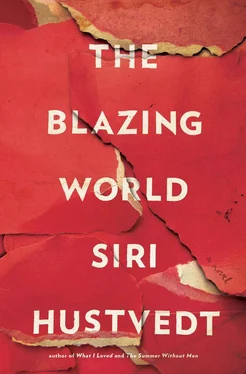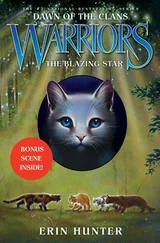I’ve been watching The Diary . It goes on and on. There is too much to see. The visual glut of too much.
A moment when I stopped the movie: a lackey is filming Rune at a party. That means there are two cameras. One seen. One invisible. Rune is smiling, gesticulating. His eyes narrow in interest as he chats up a woman with a magenta bob and narrow green glasses. He laughs, a big cackle, waves goodbye, and turns toward the unseen camera. But in his face there is no sign of the animation immediately past. The transition is too violent. Our feelings usually linger for a few seconds anyway. I ask myself what lies under his conviviality.
Thursday, June 7, 2001
I picked him up at the airport at 1:30, and his big smile and broad wave made me feel instantly guilty about the thoughts I had last night. He teased me about my truck, my beloved junk heap, but it runs and runs.
Praise for the house — a real beach house, not a McMansion, not an overblown summer place like some of those horrors in the Hamptons. I showed him the studio. Showed him some of my little people in the chorus for Blazing . All their mouths are open in song.
Ate the swordfish with relish and drank wine. We looked out onto the beach and the tall moving grasses that grew nearly black against the night sky, a cobalt blue — straight from the tube. Only a few moments of strangeness when I thought, What is he doing here? What am I doing? Maybe I am the mad scientist.
I watched Rune move. I remarked silently on his grace. This is helpful in the world — grace. His left hand (I understood today that he is left-handed) flies out open-palmed for emphasis, and his speech rolls out of him, not too fast, and with little emotion. His voice is low and soothing, and he smiles only at long intervals, but when he does, it feels as if I am being rewarded. He is curious and has read all kinds of books, but it is not what he says that seduces. It is his belief in his own power to seduce.
After dinner, we lay on the two red sofas in the living room. He smoked, and I inhaled the smell of cigarettes, an odor reminiscent of my marriage. I have learned that there is no debate of ideas with Rune, no point for a rational point to be made between us. He is a man of the scattershot and sporadic, of apt quotations, remembered dates, unlikely pairings, and non sequiturs. April 1938: Eight days after Austria voted for the German Anschluss, Superman made his first appearance on the American stage. The Marquis de Sade, he informed me, was born on June 2, 1740. The very next day, June 3, King Frederick the Great of Prussia ascended the throne and, as one of his first decrees, abolished torture. I am not surprised that Rune takes a fashionable interest in Sade, in desire as repetition, in bodies as machines, in the man’s bleak extension of Enlightenment clockwork to sexuality. Do you fancy yourself a libertine? I asked him. And he said no, just an information-processing machine with inputs and outputs attached to a potent sex drive. He quoted Nietzsche: “Man is something to be overcome.” (He is loose and fast with Nietzsche.)
In a single beat, he jumped to J. G. Ballard and the man’s 1970 exhibition of crashed cars at the New Arts Lab. Better than Duchamp, better than Warhol, he said. Crashed Cars is the art exhibit par excellence . Ballard’s book Crash heralded “the new sublime,” an erotic explosion of metal and glass and dismemberment. But more than the glories of the smash-up, Ballard was a soothsayer, a juggernaut, a harbinger of what was still to come. Hadn’t art museums become Disney palaces, just as he had predicted? Hadn’t the oracle said, “Sooner or later, everything turns into television”?I Hadn’t he said, “In the post-Warhol era a single gesture such as uncrossing one’s legs will have more significance than all the pages in War and Peace ”?II When I wondered what the latter statement meant, Rune said, Isn’t it obvious? I said, Not at all, not at all, but he had moved on to Philip K. Dick and all things Phildickian, and how he loved him, too, another great shaman of our age, born in 1928, dead in 1982, still young, only fifty-four — a paranoid, addicted, five times married, hallucinating, quasi-religious maniac, but oh so wonderful. Hadn’t Dick said, “Everybody knows that Aristotelian two-value logic is fucked”?
I asked him if Dick had advocated a three-value logic. Boolean logic has two values, too, I said, essential to computing. Three values includes true, false, and the unknown or ambiguous. Was that what he had proposed? Was he thinking larger? About Gödel’s incompleteness theory? Does he really understand it?III
Rune is used to impressing people with such statements but unused to defending them. Despite his ignorance, he just grins, extends his open palm, and tells me I’m too serious.
What if I were like that? What if I just waved contradictions aside? It would be pleasant to play the blasé hero, bloated with himself, collecting admiring glances for the half-baked and the ill-conceived.
I see my father in my mind. Your logic, Father, was about the consistency of relations, not the murk of so-called real life. It was bounded logic. That was its problem. Your true and false propositions function perfectly in their own hermetic sphere.
It is a mistake to apply logic to human life as a whole, to think logic will “wake up” machines.
But then Rune relates that once upon a time there were two Dicks, Philip K. and his twin, Jane Charlotte, who died when she was six weeks old, and the little girl ghost haunted the brother’s writing. Philip K., it seems, blamed his mother for Jane’s death. The foul womb killed his sister? He had been in there with her, after all. The mother had neglected her for him? Alas, I didn’t get the details. Rune was on a roll.
The dead girl child led us to mirrors and doubles and ghosts that never leave us, and the old story about the two sexes as the cleaved halves of a single whole being. He told me about his sister Kirsten, to whom he had always told his secrets. They had invented a code when they were children to send messages to each other their parents couldn’t read, and they called the code Runsten. They had built a fort from boxes and scrap lumber, and inside their fort they had dissected the body of a dead baby bird. And I told him about my mother’s miscarriages and that I had always wondered if my father hadn’t wanted a boy. Maybe one of those who had died had been a boy.
Later, he rattled on about artists I’d never heard of, and I understood he had an encyclopedic knowledge of the now — what’s in the Chelsea galleries this minute. It was impressive, but after a while my mind left his words for my own silent ones, the ones who think they have a right to be young and wander off to look for new meanings, and I interrupted him at one point to bring up our work. I said the project would have to disguise the line of suture, the incision between his art and mine. I had to know more about him. It was a question of becoming.
Becoming me?
No, I said to him, double consciousness. You and I together. I am hoping you will goad me into something else. My voice rose. Goad me into the dizziness of exile.
His face went dead, blank, as I had seen him on the film. No answer.
With your name on my work, I said, it will be different. Art lives in its perception only. You are the last of three, and you are the pinnacle. I could hear the cracking passion in my voice. I altered my tone to one of calm deliberation.
He liked the idea of pulling a fast one, but my ideas felt outdated, a little lame to him. We live in a postfeminist age of gender freedom, transsexuality. Who cares which is which? There are lots of women in art now. Where is the battle?
Читать дальше












